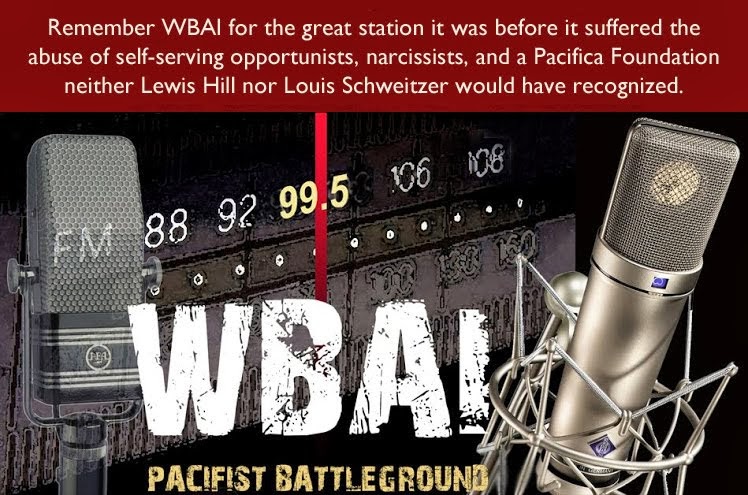In 1963, Pope John XXIII issued a papal encyclical and broke with convention by aiming its call for peace beyond his own flock. It received worldwide attention and powerful pundits spoke of it with the kind of reverence usually reserved for the Magna Carta and our Constitution, but—in the final analysis—its positive impact was not any greater than that generated by Rodney King's "Can we all get along?" Still, the Pope's encyclical inspired all kinds of official facades, and so it lingered awhile. In February of 1965, a Pacem in Terris Convocation took place in New York and we—being a Pacifica station, gave it six hours of live coverage. The Folio cover, which I dashed off with pen and water, was misleading, for it suggested a deeper focus on the event, but six hours of live transmission was somewhat special. The big event of that Folio period was our annual broadcast of Wagner's The Ring of the Nibelungs—it was something no other station would even think of offering. Rather than play commercially released material, we aired a complete recording of the previous Bayreuth Festival, and most listeners liked the idea. There were a few who found Wagner's music offensive, because it had been so greatly admired by Hitler. We apologized for our insensitivity, but reminded them of the fact that the expired dictator and his favorite composer never knew each other. The "Ring" being of unusual length, taking up the sunrise to sunset hours, we scheduled three intermissions, and one year—it may have been 1965—I decided to fill one of them with Stan Kenton's interpretations of Wagner's music. It is one of his least popular albums, but I thought the juxtaposition might me interesting. Some loved it, others dubbed it a sacrilege, but I was particularly taken by a Jewish lady who admitted that she had written us a letter protesting the very concept of airing Wagner on WBAI, but now had to confess that she found the "real thing" preferable to Kenton's.
In this Folio, you will also see exterior and interior photos of The Center for the Study of Democratic Institutions, a think tank whose Founder/President was Robert Hutchins. Hallock Hoffman, then President of the Pacifica Foundation, was on the Center's Board of Directors, which at various times also included Bishop Pike, Justice William O. Douglas, and Linus Pauling.
An offshoot of the Fund for the Republic, the Center's home was a 43-acre estate situated on a hill above Santa Barbara. From its huge conference room one commanded a stunning view of the Pacific in a surrounding that would not have seemed out of place in a James Bond movie. It was an unlikely place for Pacifica to hold its monthly meetings of the board and station managers, but this is where we discussed our low budgets and high aspirations. Hallock occasionally sent us a taped discussion from the Center, and we usually aired them. Frankly, I don't recall why this issue of the Folio contained photos of the Center, but I guess Marcia Tompkins had space to fill.
Incidentally, the Center for the Study of Democratic Institutions was very concerned over wiretapping, which made all the more embarrassing the revelation that some of its members had planted inter-office bugs. Perhaps that's what prompted Alex Comfort (a Senior Fellow, who wrote The Joy of Sex) to withdraw his considerable financial support and declare, "The center has no future—it is a fiction and a sham."
I hope you find these Folio scans interesting.
Click on an image to make it readable—a second click will further enlarge it




















































